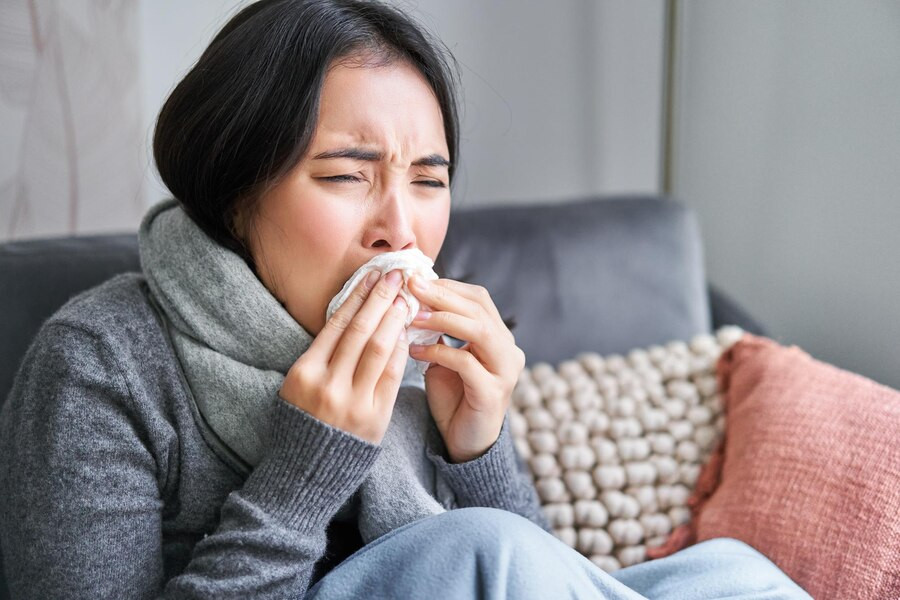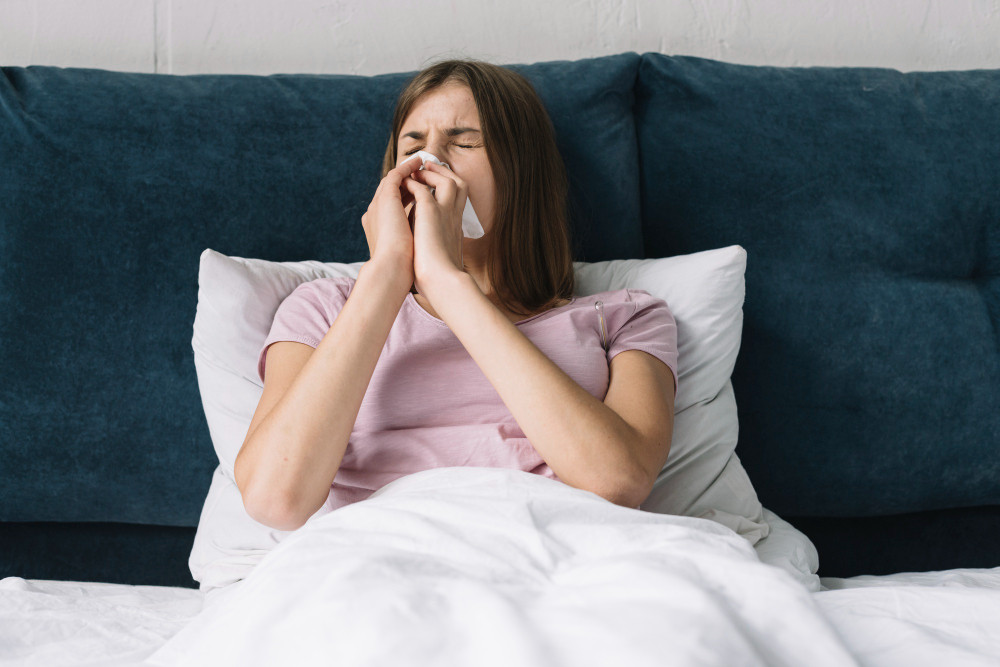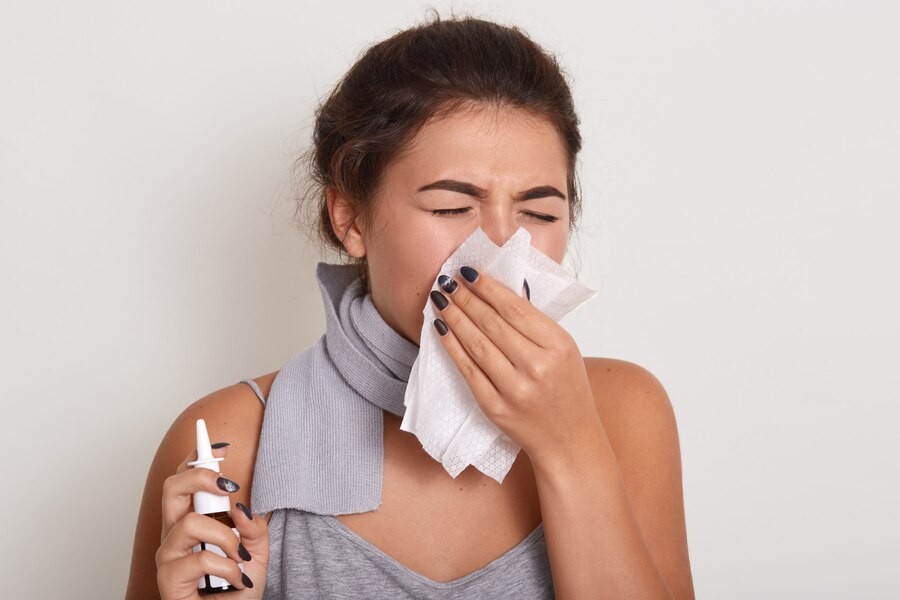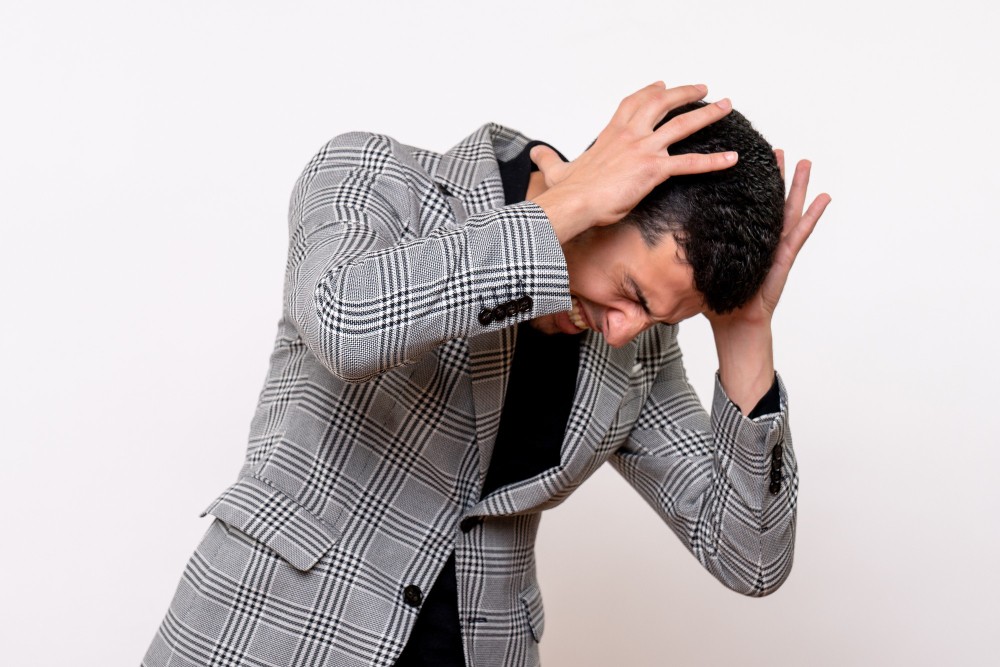Do you frequently find yourself sneezing in the morning? While this might seem like a minor irritation, sneezing upon waking can sometimes signal underlying health issues.
Learn what might be causing your morning sneezing and discover possible solutions.
Causes of Frequent Morning Sneezing
Dust and Dust Mite Allergies
Dust and dust mite allergies are a common cause of morning sneezing. Dust and mites tend to accumulate in mattresses, pillows, sofas, and bed linens, which can be inhaled upon waking.
These allergens trigger allergic reactions such as sneezing, nasal congestion, and watery eyes. To manage symptoms, it's important to wash sheets, pillowcases, and blankets weekly, use mattress protectors, vacuum regularly, and maintain a suitable level of room humidity.
Allergic Rhinitis
Allergic rhinitis refers to inflammation of the nasal mucosa caused by exposure to allergens like pollen, mold, or pet dander. Symptoms include sneezing, a runny nose, nasal congestion, and itching in the nose, eyes, or throat. These symptoms can intensify in the morning as allergens tend to accumulate in the home overnight.
Preventing this condition involves minimizing exposure to allergens by keeping windows closed, using HEPA filters in air conditioners, washing hands and face after outdoor activities, and maintaining good personal hygiene.
Temperature Changes
Some individuals are sensitive to fluctuations in temperature, particularly when shifting from warm to cold. Cold air can irritate the respiratory tract, making sneezing more likely.
To minimize this, maintain a consistent room temperature. Avoid extreme temperature changes, and use blankets that provide warmth without causing overheating. Ensure proper ventilation in your bedroom to avoid excessive humidity, which can also affect your airways. If you use a fan or air conditioning, be sure it doesn’t blow directly on you while you sleep.
Chronic Sinusitis
Chronic sinusitis is a condition where the sinuses are inflamed for more than 12 weeks, leading to symptoms such as nasal congestion, facial pain, and frequent morning sneezing.
Symptoms often worsen in the morning because mucus builds up in the sinuses during the night. When you wake up, your body attempts to clear this mucus through sneezing.
Treatment for chronic sinusitis includes decongestants, nasal steroids, or antibiotics. You might also be advised to use a humidifier, rinse your nose, or apply warm compresses to the painful areas of your face.
Indoor Air Pollution
Indoor air pollutants like cigarette smoke, cleaning chemicals, and other irritants can contribute to morning sneezing.
To address this, avoid smoking indoors or near windows, and opt for cleaning products that are free from harmful chemicals and carry environmentally friendly labels.
If home remedies don’t resolve your symptoms or if they worsen, consult a doctor for advice. You can also use the Ai Care health consultation service by downloading the app from the App Store or Play Store.
Want more information on other health issues? Click here!
- dr Nadia Opmalina
Valencia Higuera (2024). Why Do I Have Allergy Symptoms in the Morning?. Available from: https://www.healthline.com/health/morning-allergies
Kathi Valeii (2024). Why Do I Have Morning Allergies?. Available from: https://www.verywellhealth.com/morning-allergies-overview-5199321
NHS Inform (2024). Allergic rhinitis. Available from: https://www.nhsinform.scot/illnesses-and-conditions/ears-nose-and-throat/allergic-rhinitis/
Mayo Clinic (2021). Dust mite allergy. Available from: https://www.mayoclinic.org/diseases-conditions/dust-mites/symptoms-causes/syc-20352173
Alexandra Benisek (2023). Nonallergic Rhinitis. Available from: https://www.webmd.com/allergies/nonallergic-rhinitis
Edward Kwon and Maria C. O'Rourke (2023). Chronic Sinusitis. Available from: https://www.ncbi.nlm.nih.gov/books/NBK441934
Carmen H. Li, et all (2020). Air Pollution and Allergic Rhinitis: Role in Symptom Exacerbation and Strategies for Management. Available from: https://www.ncbi.nlm.nih.gov/pmc/articles/PMC7457822/












